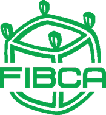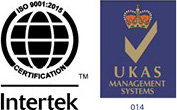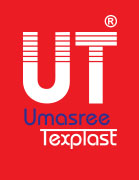How FIBC Bags Are Revolutionizing Waste Management

In today’s eco-conscious era, industries across the globe are exploring sustainable solutions to minimize environmental impact. The Flexible Intermediate Bulk Container (FIBC) bag is one such innovation that is transforming garbage disposal and industrial packaging. Once seen only as a heavy-duty packaging tool, FIBC bags for waste management have now evolved into a cornerstone of sustainable waste handling practices.
This article explores how FIBC bulk bags are transforming waste management, helping businesses adopt green alternatives, reduce their carbon footprint, and improve overall operational efficiency.
What Are FIBC Bags?
FIBC bags are woven polypropylene containers that are big, strong, and flexible. Designed to hold dry, flowable products like sand, fertilizer, plastic granules, and waste materials, these bags come in various forms — including U-panel bags, circular bags, 4-panel bags, baffle bags, and ventilated FIBCs. For waste management, specially designed FIBC waste bags are used to store and transport industrial, agricultural, or construction waste safely.
These bags are favored for their reusability, recyclability, and cost-efficiency, making them an ideal replacement for traditional single-use packaging or rigid waste bins.
How FIBC Bags Transform Waste Management?
1. Eco-Friendly Waste Collection and Transportation
One of the biggest environmental challenges in waste management is the use of single-use plastic bags or non-degradable containers. FIBC bags present an excellent sustainable substitute due to their multi-use functionality and recyclable material.
These bulk bags can be reused multiple times before recycling, significantly reducing plastic waste. Plus, being lightweight yet sturdy, they require less fuel for transportation, thereby minimizing carbon emissions.
Industries that benefit from using FIBC waste bags include:
· Construction
· Agriculture
· Manufacturing
· Municipal waste management
· Hazardous waste disposal
FIBC bags for waste help these sectors meet their sustainability targets while maintaining safety and efficiency.
2. Cost-Effective Waste Handling Solution
When compared to traditional waste containers like steel drums, bins, or wooden crates, FIBC bulk bags are incredibly cost-effective. Their high load-bearing capacity, foldable design, and reusability offer long-term savings.
Businesses no longer need to invest in expensive and bulky infrastructure to manage their waste. Instead, they can adopt flexible waste packaging solutions that are:
· Easy to store when not in use
· Quick to deploy on-site
· Capable of handling varied waste types
By using bulk FIBC bags for waste, companies can streamline their waste collection process while saving significantly on transportation, storage, and labor.
3. Custom FIBC Bags for Specialized Waste Needs
Waste management is not one-size-fits-all. Different industries generate varied types of waste—some hazardous, some organic, some recyclable. Fortunately, FIBC bags may be tailored to meet these particular requirements.
Each variation provides optimal safety, protection, and compliance with international waste management standards. This customization ensures that companies can manage waste efficiently without compromising on safety or environmental responsibility.
4. Safe Storage of Hazardous Waste
Numerous industrial industries handle hazardous, flammable, or poisonous waste. Such items can cause occupational dangers, water and soil pollution, and legal repercussions if improperly disposed of. FIBC bags—especially UN-certified and antistatic (Type C) bags—are specifically engineered for such use cases.
These bags are equipped with:
· Leak-proof liners
· UV resistance
· Electrostatic dissipation properties
· Certified weight capacities
As a result, hazardous waste is securely contained and transported to recycling or disposal facilities with minimum risk to workers or the environment.
In 2024 and beyond, using certified FIBC bags for hazardous waste is not just a safety measure — it’s a regulatory necessity.
5. Recyclability and Reduced Environmental Impact
The actual FIBC bags are frequently composed of recyclable plastic braided polypropylene. At the end of their lifecycle, these bags can be shredded, cleaned, and repurposed into other plastic products. This ensures a circular economy, reducing landfill dependency and plastic pollution.
Furthermore, FIBC bags promote:
· Minimal material loss during waste handling
· Reduction in secondary packaging needs
· Efficient segregation of recyclable vs. non-recyclable waste
Many municipalities and industrial zones now recommend recyclable bulk bags as part of their zero-waste initiatives.
6. Space-Saving and Stackable Design
When not in use, FIBC trash bags may be folded flat, saving valuable warehouse or job-site space in contrast to rigid dumpsters. Their stackable shape and stability allow for vertical storage, helping businesses maximize their floor footprint.
Also, filled bags can be:
· Moved with forklifts or cranes
· Loaded onto pallets
· Easily stacked without spillage
This smart design improves waste logistics, particularly in construction or disaster clean-up zones where space is limited and time is critical.
7. Supporting the Circular Economy
The circular economy idea emphasizes prolonging product life cycles and cutting waste. FIBC bags directly support this model by offering:
· Multiple reuses
· Full recyclability
· Sustainable sourcing (if made from recycled materials)
In waste management, adopting reusable FIBC bags over disposable solutions helps reduce the demand for virgin plastic. It also aligns businesses with sustainability goals and ESG (Environmental, Social, and Governance) compliance, which is vital in today’s global supply chain practices.
Conclusion: FIBC Bags as a Sustainable Future of Waste Management
In conclusion, FIBC bags are far more than just bulk packaging solutions—they are powerful tools for transforming the way we manage waste. From safe handling of hazardous materials to eco-friendly transport and recyclable design, these bags are pushing industries toward a more sustainable and efficient future.
The adaptability, durability, and eco-conscious benefits of FIBCs make them an indispensable part of modern waste management strategies. As regulations tighten and green practices become a top priority, companies looking to make a real impact should consider switching to FIBC waste bags.
Partner with Umasree Texplast for Sustainable FIBC Waste Solutions
At Umasree Texplast, we specialize in manufacturing eco-friendly, customizable, and certified FIBC bags tailored to your waste management needs. Whether you need ventilated compost bags, hazardous waste containers, or recyclable polypropylene solutions, we’ve got you covered.
Contact Umasree Texplast today to learn how our FIBC solutions can enhance your waste management practices while supporting your environmental goals.





